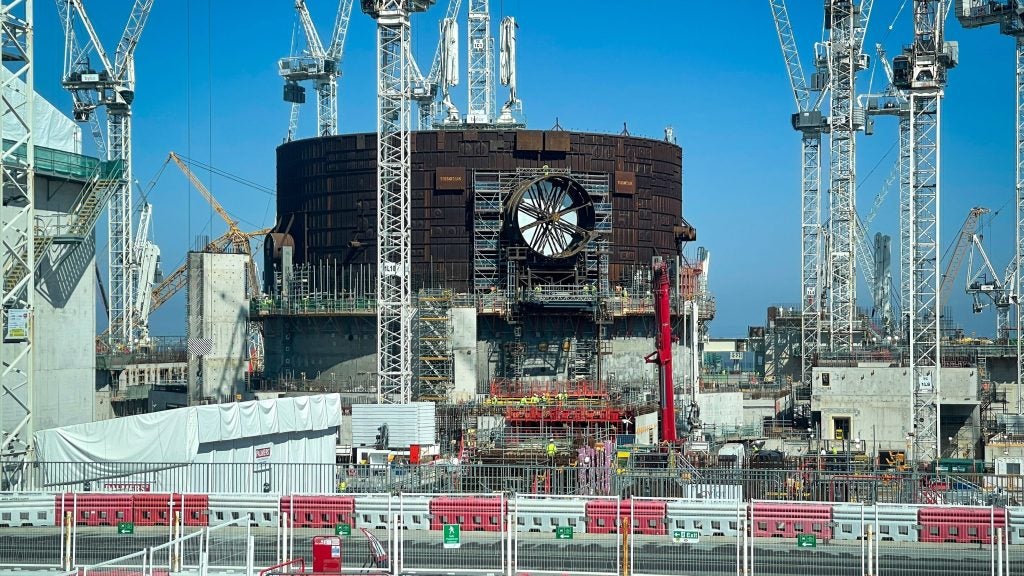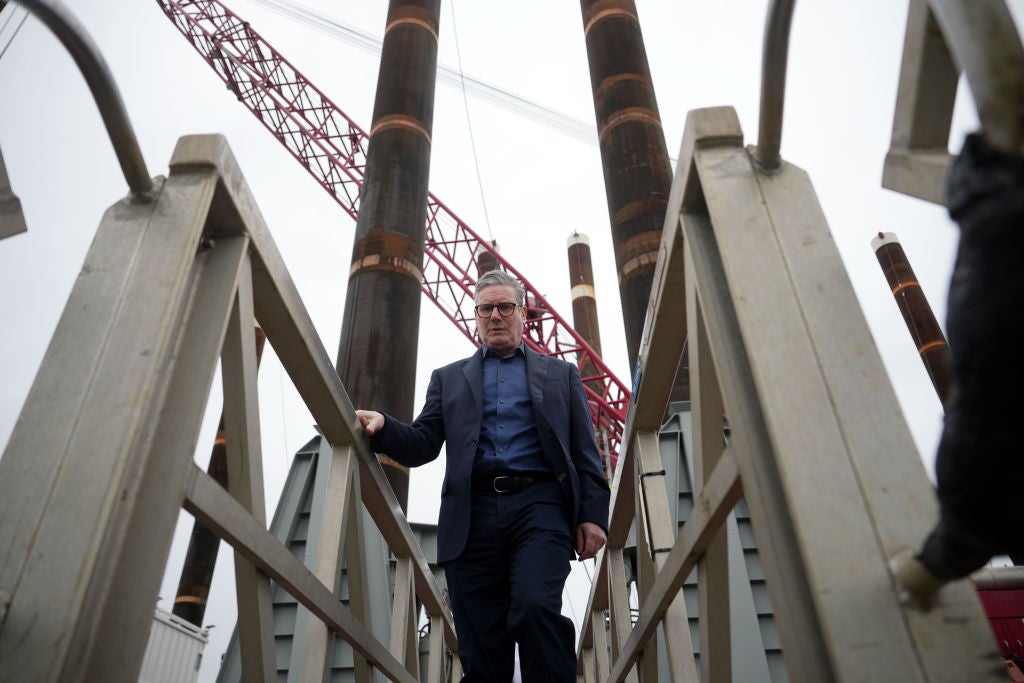Since Brexit hit and customs barriers went up, headlines have poured forth about the closure of businesses and slowdown in trade between the UK and the EU. At the same time, the UK is supposedly driving forward its plans for a green industrial revolution. While Brexit is causing a headache for many businesses, some in the clean energy space believe there is now no other choice but to reinvigorate UK industry to ensure companies can better control supply chains and bring down greenhouse gas emissions.

In November 2020, the UK government published its ‘Ten Point Plan for a Green Industrial Revolution‘, covering a variety of sectors, from public transport to electric vehicles (EVs), aviation and buildings.
“Just as science will enable humanity to rout coronavirus, so we will use the UK’s extraordinary powers of invention to repair the economic damage and build back better,” enthused UK Prime Minister Boris Johnson in his foreword to the plan. “Now is the time to plan for a green recovery – with high-skilled, high-paid jobs that offer the extra satisfaction of helping to make our nation cleaner, greener and more beautiful.”
He eulogised over a vision where, “You cook your breakfast using hydrogen power before getting in your electric car, having charged it overnight from batteries made in the Midlands”. A future where British towns and regions have become “synonymous with green technology and the jobs they bring”. And a world in which “Britain’s ability to make hydrogen and capture carbon pioneered the decarbonisation of transport, industry and power”.
This all sounds very derring-do. However, the current state of British manufacturing is fairly dire and Brexit has only made the situation worse. Is the idea of a green industrial revolution simply pie-in-the-sky or can the UK, post-Covid and post-Brexit, kick-start its economy around green manufacturing?
How well do you really know your competitors?
Access the most comprehensive Company Profiles on the market, powered by GlobalData. Save hours of research. Gain competitive edge.

Thank you!
Your download email will arrive shortly
Not ready to buy yet? Download a free sample
We are confident about the unique quality of our Company Profiles. However, we want you to make the most beneficial decision for your business, so we offer a free sample that you can download by submitting the below form
By GlobalDataSee Also:
Increased red tape
The creation of the EU in its modern incarnation, with the signing of the Maastricht Treaty in 1992, was a boon for UK manufacturing, as our sister publication Investment Monitor wrote recently. Many companies opted to set up operations in the UK as it offered a gateway to Europe.
In the following years, manufacturing fell in the UK as China, Germany and others stepped up the pace. This decline was not helped by the government’s decision after the 2008 financial crisis to back financial services and banking instead of manufacturing. But after a dip – between 1997 and 2009, more than 1.5 million jobs in British manufacturing were lost – the situation improved and until 2017, with the exception of 2015, every year saw an increase in UK manufacturing sales.
Then Brexit hit. Johnson blustered his way through negotiations aimed at deciding just how the UK would leave the EU, broadly suggesting everything would come out in the wash – but this has not been the case. Companies in many sectors have been left struggling with extra customs paperwork and charges, and significant disruptions to supply chains, while the City has been largely left high and dry. Whether the government will now decide a green industrial revolution is the horse to back and fully throw its weight and the necessary investment behind it remains to be seen.
“Five years ago, any environmentalist would have been overjoyed to see the measures in the government’s plan aimed at kick-starting a green industrial revolution,” says Eliot Whittington, director of the Prince of Wales’s Corporate Leaders Group, part of the Cambridge Institute for Sustainability Leadership. “It is a single package covering all areas of the economy, and the announcements are real and substantial.”
However, missing is the full explanation as to how this vision will be implemented, says Whittington. “We need to build on the plan and see all the components coming together for a net-zero strategy.” There is potential for reindustrialisation, he says, but “government needs to take a whole system view” of the economy. With this in mind, Whittington welcomes the Treasury’s ongoing Net Zero Review, examining how the transition will be financed, encourage innovation and support UK competitiveness.
We need to throw the rulebook away and work out what is the most sustainable way to get from A to B. Adam Barmby, Electric Assisted Vehicles
Embed net zero
If the UK is to lead a green industrial revolution or anything approaching it, the government must adopt a much more coherent approach, says Caterina Brandmayr, head of climate policy at Green Alliance, a UK think tank. “It is important the government stimulates a low carbon economy and progress towards net-zero emissions and there is a national reckoning. It needs to really embed net zero and ensure it trickles through all investment and tax decisions.”
Rather than sitting around and waiting for the government to work out how to finance a green industrial revolution, entrepreneur Adam Barmby, founder and CEO of Electric Assisted Vehicles, a company offering last-mile transport solutions, believes the private sector should just get on with it.
[Keep up with Energy Monitor: Subscribe to our weekly newsletter]
Working with big companies such as the parcel delivery firm DPD and Ocado, a UK online supermarket, Barmby has created small EVs that take goods on the last leg of their journey in cities. “As a small company, getting money out of the government is difficult, you need three to four heads just to fill in the forms,” he comments. “This is a backwards way of doing things. We are still waiting for money for a project that started six months ago. The system does not work.”
Instead, companies need to innovate and create new business models. “At EAV, we don’t want to sell a product, but a vision,” says Barmby. “We don’t want people to buy our products, but to subscribe to our service, to lease a fleet of our vehicles and its maintenance, as a package.”
Long-term business opportunities
Brandmayr endorses this call for new business models and believes they can lead to new opportunities for industry and jobs. “This can mean a whole range of solutions, including services-based business models instead of ones based on selling products,” she says. A green industrial revolution should offer “long-term business opportunities” and “employment opportunities across the country”.
Set up two years ago, Barmby says his company has been “almost crippled” by Brexit. “We are 15 people and should have been 30 by the end of last year, but we can’t have a growing production line without a constant supply of parts,” he says. EAV is struggling to get bike parts it has traditionally shipped in from across the Channel. Nobody will deliver brakes from the Netherlands, says Barmby, leaving him with little alternative but to buy less-good-quality brakes from China. “We have always imported batteries and motors, but I just got off the phone to a British seller,” says Barmby. “I would love not to buy Chinese products.”
Indeed, his solution to the current problems is to look as close to home as possible for all his needs. One of Barmby’s projects is to buy hemp from a farmer in Cornwall and within a 200m radius of the farm transform it into bodywork for his vehicles. Waste should also properly be incorporated into the economy, he says. “We should be reusing waste, not creating recycling for the future.”
Behind his vision is a “common sense approach to manufacturing and moving goods and people” based on “sustainability values” not cost. He would like to see the government create a system of metrics to measure sustainability and the quality of a product. “We need to throw the rule book away and work out what is the most sustainable way to get from A to B,” says Barmby.
Cost versus local production
He cites the UK’s offshore wind industry as, in his view, an example of cost beating sustainability. The industry is generally held up as a symbol of success. Thanks to a successful auction process and contracts for difference, prices have tumbled and the sector has experienced massive growth, contributing in no small way to decarbonising the UK’s energy supply. However, Barmby describes the auction system as “terrible”, saying a focus on getting the price down has led to turbines being imported instead of being made in the UK.
Jack Jones from the UK Trade Unions Congress agrees. Lots of wind farms are going up, but most manufacturing jobs are not going to sites in the former industrial heartlands of north-east England as was predicted, says Jones. “Wind turbines sited off the coast of Scotland are imported from the UAE, Spain and China because these projects are owned by private equity and sovereign wealth funds that have pre-existing global supply chains and are not willing to invest in local supply chains,” he says. The government introduced an “unambitious” target that 60% of the offshore wind supply chain should be UK-based by 2030, but that is not being met, adds Jones.
We need to bring supply chains back to the UK. We have no control over supply chains in Asia; we don’t know how the batteries are manufactured. Lars Carlstrom, Italvolt
“Offshore wind is a success story,” insists Whittington. “Industry has done better than expected in bringing down costs, but a different way of doing things could have led to more jobs and production being in the UK.”
Offshore wind is a major employer in the UK, supporting 11,000 jobs, a number that is set to grow to 27,000 by 2030, says industry group RenewableUK. With eight operational wind industry production facilities, the UK ranks eighth in Europe. These factories produce different components from blades to nacelles, gearboxes, generators, bearings and towers, much of which is for the domestic market, says Brussels-based lobby group WindEurope.
“The offshore wind industry is bringing significant industrial benefits to the UK, with factories and supply chain companies forming centres of excellence around the country, employing thousands of people in highly skilled jobs,” says Melanie Onn, deputy chief executive of RenewableUK. “This industry will become increasingly important in the years ahead as we continue to grow the amount of UK content in our offshore wind projects, which already stands at nearly 50%.”
Jones agrees there is potential for jobs and growth as the UK transitions from fossil fuels to cleaner energy sources, but cautions that “green and good don’t necessarily go hand-in-hand”. He calls for “a just transition [that] doesn’t destroy lots of good jobs” with the government setting a long-term strategy and financing to give the private sector the certainty to invest, in particular in skills and training.
The green industrial revolution must also be less cavalier with its workers than the original industrial revolution, says Jones. “New, smaller renewables companies must be unionised and offer the same health and safety as bigger companies and other sectors,” he adds. He cites research suggesting there are twice as many accidents on offshore wind farms than on oil and gas platforms. “There are too many dodgy ‘Wild West’ practices,” says Jones. Industry says different methodologies mean the statistics are not directly comparable.
Pain before gain
Lars Carlstrom, founder and CEO of Italvolt and shareholder of BritishVolt, is bullish that, post-Brexit, green industrialisation is a big opportunity for the UK, although he acknowledges that in the short term the situation may not be easy for everyone.
“It could change society and create prosperity,” he says. “The change will be painful for many, but in the next five to ten years, we will come out better and bring back jobs.”
A planned battery gigafactory for Northumberland in the UK’s north-east “will have big social impact”, employing 3,000–4,000 people directly and supporting a larger ecosystem of 15,000–20,000 people, he says.
For Carlstrom, it makes little sense to talk, as it does in the Ten Point Plan, about phasing out petrol and diesel cars by 2030 if batteries for EVs, or even the cars themselves, are imported from China.
Brexit has “hyper-accelerated” the energy transition and made a UK green industrial revolution “a necessity”. Adam Barmby, Electric Assisted Vehicles
“We need to bring supply chains back to the UK,” says Carlstrom. “We have no control over supply chains in Asia; we don’t know how the batteries are manufactured. Also, batteries are very heavy — we cannot transport them over the sea and say they are a green product.” He wants the government to show it is “serious” about a green industrial revolution by ensuring batteries made in Asia are more expensive than those made in the UK. “It costs money to be green,” he says, but insists the rewards will be plentiful.
“Brexit could be an advantage if it means we can ultimately supply British batteries to the UK car market,” comments Carlstrom. He would like a more local focus on all parts of the EV supply chain with the government encouraging more sustainable extraction of lithium from UK geothermal plants. It is a “disgrace” this is not already happening, says Carlstrom.
Whittington likes to compare the situation in the UK to hiking in the hills. “There is still far to go, but we also need to look back to see how far we have gone,” he says.
Barmby would prefer to focus on the future. Instead of hand-wringing about Brexit, business should see it as “an opportunity to get back to producing British everything”, he says. For him, Brexit has “hyper-accelerated” the energy transition and made a UK green industrial revolution “a necessity”.
Brandmayr believes “it will take time to know the full extent of the challenges related to Brexit”, but she is also quietly optimistic that if the government sets ambitious decarbonisation policies it could trigger an opportunity to “attract inward investment” in the green economy and strengthen “UK business competitiveness in a global low-carbon market”.
However, for any of this to happen, we must “mobilise resources on the kind of scale of the Second World War or the space race”, concludes Jones.







